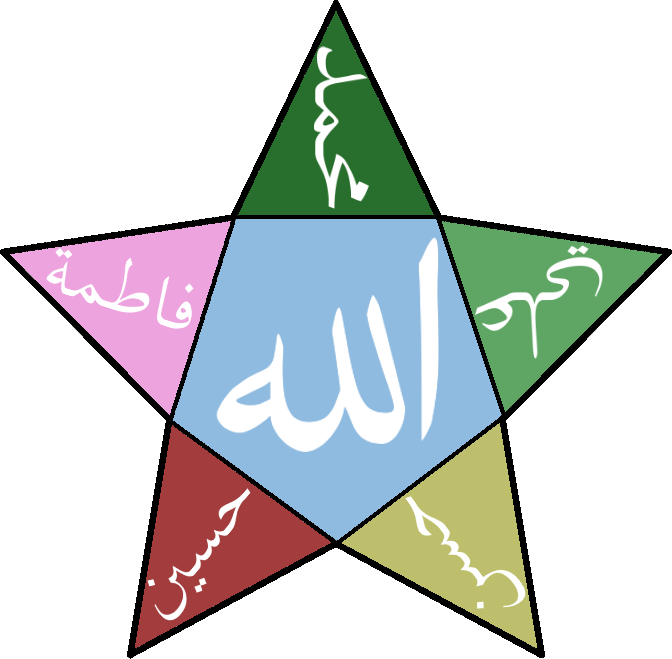Islamic Leftism

Welcome to Islamic Leftism, a space for muslims leftists.
Lemmygrad rules apply:
- No capitalist apologia / anti-communism.
- No bigotry - including racism, sexism, ableism, homophobia, transphobia, or xenophobia.
- Be respectful. This is a safe space where all comrades should feel welcome, this includes a warning against uncritical sectarianism.
- No porn or sexually explicit content (even if marked NSFW).
- No right-deviationists (patsocs, nazbols, strasserists, duginists, etc).
- No class reductionism
Rules for Islamic leftism:
-
No discrimination against other faiths or to those who lack it
-
No uncritical judging, always look for the cause of things before doing judgement
-
No compulsion in acceptance of the religion, if someone decides to leave or enter Islam let them for Allah is all-Knowing all-Wise and all-Forgiving
-
No takfir ( excommunication ) against the innocent believers or other persons who don't share the same beliefs or ideas
-
No treachery, show kindness to others even if they are mean to you
-
Be always open to different jurisprudence or schools in Islam
-
No discrimination against different schools or sects in the religion and outside of it. Is better to be united and in harmony
-
Be respectful to eachother be it religious or non-religious, believer or non-believer
All of you are welcomed to join
view the rest of the comments
This is a bit long, but I wanted to genuinely defend why I thought the article was worth sharing in the first place.
I honestly don’t know how you interpreted the article that way.
I admit it could be clearer, and may just be the fault of translation, but they didn’t try implying that if read in full context:
With the paragraphs in mind, the start of the 2nd paragraph is clearly referring to the people mentioned beforehand, those that did sought refuge in the shelters, aka gay people. So it wasn’t fearmongering about converting all non-Whites to homosexuality.
The key part of the entire 2 paragraphs is the dichotomy between “hidden and in denial” versus “visible and proud” - do homosexual indigènes not have any minds of their own to negotiate with the fact that they live in a homophobic community?
This is what they mean by the entirety of that 2nd paragraph. Why are those the only 2 options given for homosexual indigènes? Why must they either be out and proud or in the closet? Both implictly implying that they are the victims and not agents that act upon a given condition.
Which is why later on the author says:
There is a material cost to the 3 dilemmas she mentioned, but also to coming out, to claiming a politicised identity, which also incur a lot emotional costs too, of course. But not only to the individual. It will affect the entire family and community. It would destabilize the entire social fabric of indigènes communities.
Not because gay people are destructive - but it would upset the social reproduction of these communities, which would mean the total subjugation of the indigènes to the oppressors. And for many, that is not worth the cost, so:
So when you say,
It isn’t a post hoc justification, it is literally how homophobia is reproduced in capitalism. Homophobia is reproduced through the institutions of the heterosexual family, in which for the case of the indigènes, is what the author argues is the last line of defense from racialised society.
To use the famous chapter by D’Emilio,
and
The essence of this “racialised” homophobia is entirely different. I can’t say specifically about the organisations she mentions - as I am entirely clueless about French politics - but the case she makes is clear: this apparent homophobia is a form of decolonial resistance of an oppressed group against the imperialists.
It is nothing like the “traditionalism” of the White Right, a reaction to losing privileges due to the decay of capitalism.
Just like Northern labour aristocrats, we must then push back on this idea that somehow these labour aristocrats were victims of propaganda and in turn that somehow the reluctance for some minority groups, especially muslim ones, to neither fully accept nor reject “marriage for all” and a gay political identity, is due to fully internalized Homophobia, rather than a form of resistance having lived in precarity under White imperialism.
Which is why in the end the author reckons
What is the primary contradiction?
On your “you don’t get to eat your cake and have it too” comment, I can say the same to you. The fact of the matter is, Gay Imperialism exists. It isn’t a simple “co-opting”, if that was the case, I guess European social democracies were just “co-opting” communist policies during the cold war as well. There are larger dynamics at play and we should stop the “pathological or paternalistic relationship with homosexuality”.
Which is why in the end they reckon that
Is this not what we should strive for? The removal of the conditions that forces indigène communities to rely on hetero-patriachal families, which critically needs to be carried out by the indigène themselves.
This will eventually remove the material basis for homophobia.